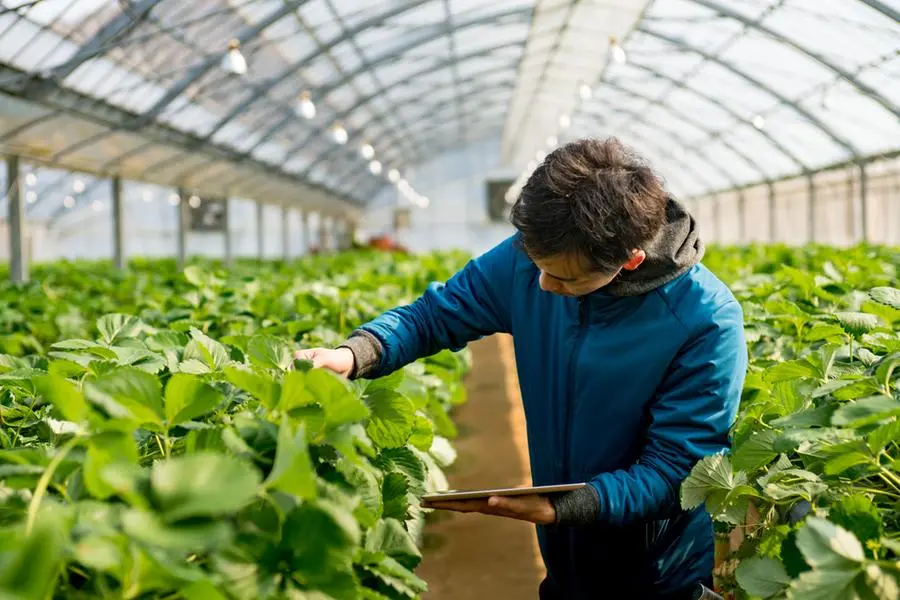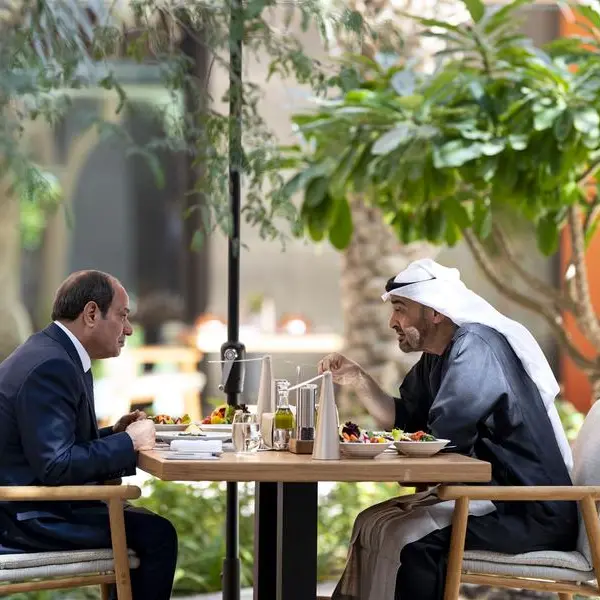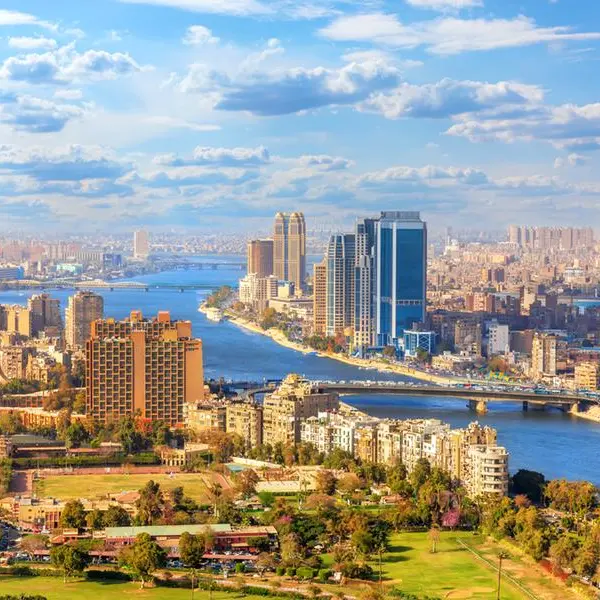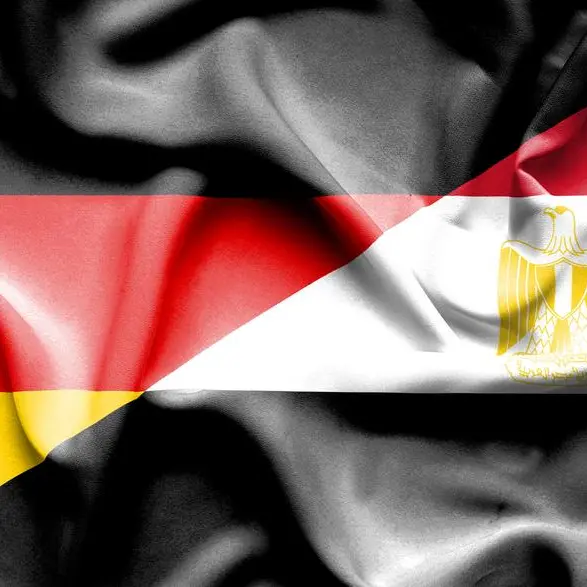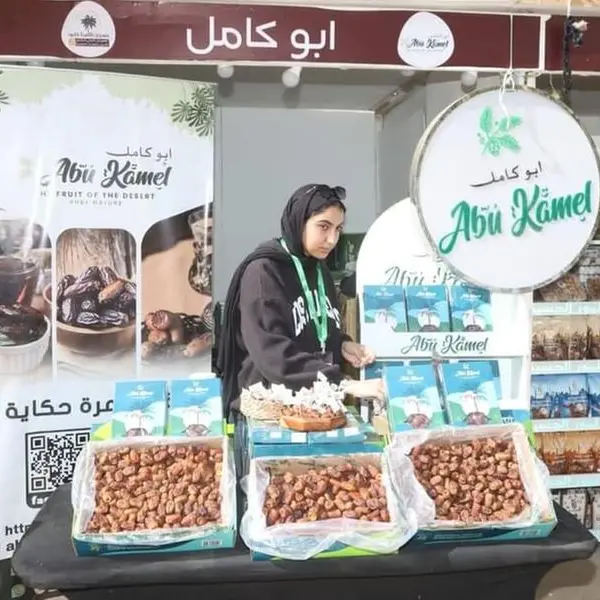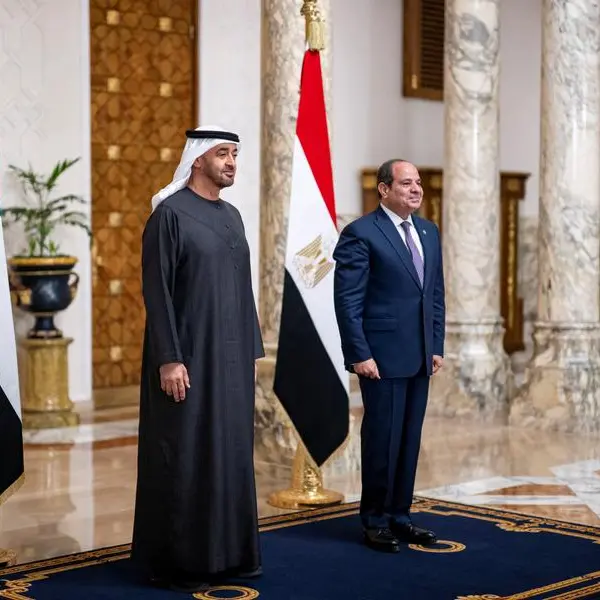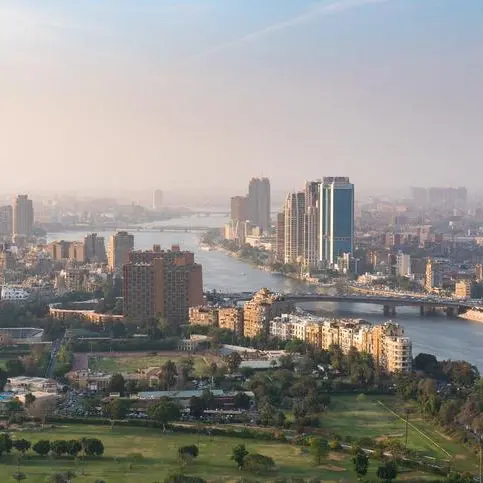PHOTO
Egypt - A group of Egyptian soil science students, mostly females, from Assiut in Upper Egypt, have been in Denmark as part of an exchange programme, organized by the Danish-Egyptian Dialogue Initiative (DEDI) to promote networks between the two sides in the discipline of geoscience at university/ high school levels.
Over a week, the Egyptian students from the department of Soils and Water at the Faculty of Agriculture at Assiut University joined Danish students in the Earth Sciences track at the Gladsaxe Gymnasium High School in Copenhagen, in field trips to landscapes across Denmark.
The trip also included visits to Northern Jylland Lammefjorden, a sandy former sea bed, most of which is now reclaimed as agricultural land. The draining project began in 1873, but it took until 1943 before the lowest elevations were pumped dry. Large parts of the fjord were shallow enough to be dry early on. They also visited a dairy farm where they learnt about the animal and dairy production and the methods of managing the farm.
The students also visited Gudenåen, Denmark’s longest river which runs through the central parts of the Jutlandic peninsula. Together with their Danish colleagues, the Egyptian group visited the factory of the Grundfos pumps and irrigation systems in Bjerringbro to learn about the technicality of pumps.
Additionally, the Egyptian delegation was received at the Gladsaxe Gymnasium High School in Copenhagen by the principal Eva Krarup Steensen who provided the group with knowledge about the education system in Denmark and the different tracks for high schools.
Moreover, the Egyptian students had the opportunity to visit a climate adaptation complex and visit the cretaceous Cliffs of Stevns, UNESCO world heritage. The visit was concluded with an iftar with the Egyptian ambassador to Denmark Karim Sherif, who warmly welcomed the group, expressing desire for supporting the Egyptian students and briefed the group on the efforts of the embassy to serve the Egyptian nationals living in Denmark.
The project is designed to bring together 20 students from both countries, between the age of 18 and 25, to exchange knowledge on specific challenges and solutions in the fields of sustainability in agriculture, climate change, and green transformation, through trips to both Egypt and Denmark.
The first part of the project started early in April with a field trip in El-Kharga Oasis depression of Egypt’s Western Desert.
Rana Khamis, the Civic Partnership Program Manager, explained that the project hopes to enable both Danish and Egyptian students to gain intercultural competences and learn about the people and customs of the hosting country.
She said that the trip to Denmark was successful by 70% for many reasons, such as continuing the intercultural level, in addition to the technical programme which was very successful and inspiring at different levels as it has achieved the main goal of the project and highlighted the “sustainability and agriculture” through many visits such as the farm and the landscapes and the climate adaption complex.
Rana noted the programme provided the Egyptian students with an opportunity to visit places and see geomorphological features that they don’t have the capacity to see in Egypt. “It is complementing their knowledge as students of soil and agriculture science.”
Despite the differences in educational levels, Rana believes that the two groups have equivalent practical knowledge particularly that the Danish students are specialized in geoscience even if they were younger than the Egyptian students.
During the two trips, each Egyptian student was settled with a Danish roommate which was very successful in breaking the ice between the two groups and contributed to achieving the cultural exchange. “It could have been better if we Egyptian students had better language skills, so that we have to be careful in the selection process of participants in the coming events. We hope that universities -in next programmes- could provide their students with an English language course for three months -before the programme- to be ready”.
“DIDI is very keen to replicate this experience in different fields and universities to promote their international cooperation level,” Rana said, adding that the next programme will be after a call or a competition, and the universities interested in agriculture and sustainability shall apply their applications. “Next time, DIDI will contribute to setting the selection criteria of students participating in the programme.”
Sahar Mostafa, a demonstrator at the Department of Soils and Water, at Assiut University, who participated in the trip to Denmark, said that this trip would contribute to changing her plans and inspires her to look forward to having an opportunity to do graduate studies in Europe.
Sahar pointed to the culture exchange during the programme which was exciting and provided knowledge about a different society and gave a chance to form new friendships. The field visits were so important for Sahar as it provided the opportunity to see new landscapes and natural features such as coasts, farmlands, the impact of waves and wind on the Baltic shores and the Danish way of dealing with water.
Omaima Abdelaal, 25, a demonstrator at the Department of Soils and Water, at Assiut University, said that she was keen to join the programme in order to benefit from the cultural exchange and visit new countries in addition to learn more about their educational system.
Omaima added that this is her first time to travel out of Egypt, and as a demonstrator she teaches to undergraduate students, and by visiting the school she was able to learn about the techniques and new ways to teach to the students in Egypt.
“The most prominent part in the visit is the laboratories at the school which are well equipped” Omaima said. She mentioned that the visit reshaped her future plans.
Aliaa Adel, 24, a demonstrator at the Agronomy Department at Faculty of Agriculture, at Assiut University, said that visiting a new country offers new experiences and enriches her knowledge.
She was particularly excited by the Danish forests and farms and the way they prepare the lands for agriculture, which is a one way, however, we have different ways to prepare the land in Egypt.
“The lecture we had on the irrigation systems in Denmark was very useful for me as it is relevant to my specialization. It provided me with good knowledge about new techniques for irrigation rather than the ways we have in Egypt,” Aliaa said.
Aliaa is looking forward to continuing her graduate studies in Germany to benefit from the progress in scientific research and the availability of capabilities.
Nada Arafat, 20, a student in the Department of Soils and Water, Faculty of Agriculture, Assiut University, said that she was keen to participate in the programme to learn about a new culture and benefit from the fieldwork that the programme provides.
“The field trip allowed me to see many things that I have studied but never seen with my eyes, such as the impact of the increase of the organic matter on the plant and the magnificent landscapes,” she said.
Nada also was excited to see the different layers of land dating back to the cretaceous period on the Baltic shores, in addition to making new friends and learning about different cultures. “My family supported me and encouraged me to participate and travel. The programme was very interesting, but the hardest thing is that we are in Ramadan (fasting month) and we are a bit tired.”
She further noted that she will work on herself to be able to obtain a scholarship to study abroad.
Bahaa Dahy, 21, a student in the Department of Soils and Water, at Assiut University, was interested in participating in the programme to visit a new country and to practice his English language skills.
“The new thing for me was to see the impact of the sea waves on the mountains, which is not available in Egypt,” Bahaa stated. “We have also visited a farm for dairy production which is -also- not available in Egypt on this scale.”
Mohsen A. Gameh, Professor of Soil Chemistry at Assiut University, highlighted the good impacts of the programme in reflecting a real image about the educational system in Egypt and the intellectual level of the Egyptian students.
Gameh is the man behind the idea of the programme when he met with Professor at Roskilde University Niels Schrøder. After that there were several mutual visits between the two professors. Gameh had received several students for Schrøder in Assiut and helped them in their studies.
“We lack some financial capabilities, but the academic level of the students is very good. I see that students from both sides were happy with the programme.”
He stated that Assiut University has the capability to cooperate with any Danish or European universities, calling on DEDI to continue cooperation with universities in the field of geoscience or other fields.
“We are very satisfied with the programme. We were very lucky with the weather -warm and no rain or wind- so we were able to do everything we aimed to do,” says Magnus Limborg, the teacher of physics and physical geography at the Gladsaxe Gymnasium in Copenhagen. “The Danish students gained some knowledge during the visit in Egypt, and the Egyptian students were also interested in everything we have seen here in Denmark.”
He added that the focal point of the trip has been agriculture and how we use the soil and how we deal with water as the two countries deal with water in two different ways. Limborg praised the effort made by the Egyptian students despite being tired due to the fasting, but they were motivated and working hard. “Sometimes it is better if the professors take a step back and let the students answer for themselves, because if they have the time they could actually answer the questions.”
“If we get the option again to cooperate with DEDI, I think we will be keen to repeat this exchange programme,” he said. Limborg stressed that the most significant part of the key point of the two trips is the cultural exchange which the Danish students were very excited about.
© 2022 Daily News Egypt. Provided by SyndiGate Media Inc. (Syndigate.info).
